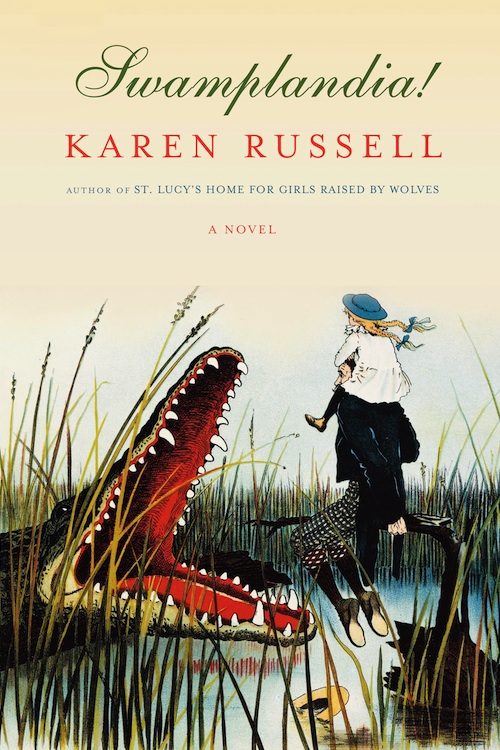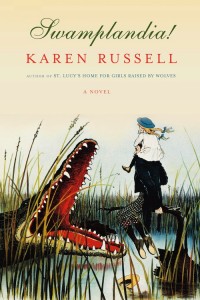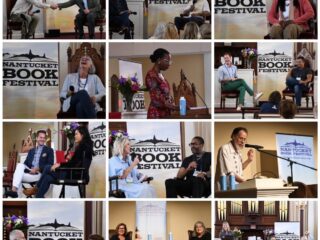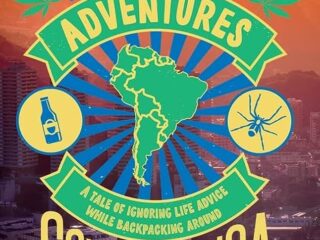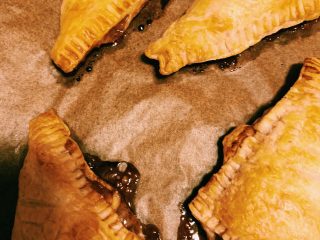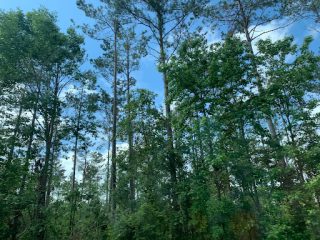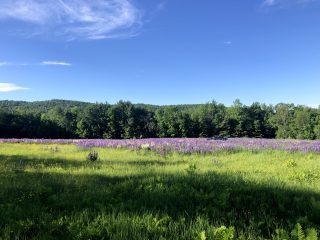Set in the sparsely inhabited swamps of the Florida Everglades, Karen Russell’s Swamplandia! is gorgeous entry into the American cannon. It is a strange book, but thanks to Russell’s considerable talent, it is a rather lovely—if sometimes disturbing—read. The critically acclaimed novel feels deeply Southern Gothic, thanks in part to the subject matter: a family of alligator wrestlers in steep economic decline, their glory years behind them as the rest of America moves onward, distracted magpie-like by flashier, shinier attractions. Though this may sound depressing, the novel is elevated by an underlying sense of magic, which glitters just below the murky surface of Russell’s story, as elusive and sweet as hope.
But perhaps this feeling of intense possibility comes from Russell’s choice to focus on the children. While Swamplandia! is about the entire Bigtree family—including the deceased mother, Hiola Bigtree, who hovers specter-like over the entire novel—the story centers on the slow growth of three young adults. In the wake of their mother’s death, each child wanders through his or her own fog of confusion, searching for a way to heal, escape, or enter into the harsh reality of the adult realm.
First, we have Kiwi, the first of the children to leave the island of Swamplandia! Following the disappearance of his father on a “business trip,” Kiwi sets out for the mainland. An avowed bookworm, Kiwi is practical about some things, but horribly misinformed about others. He realizes that their amusement park is no longer trapping tourists, and that they need to raise some funds. At seventeen, he decides to take on the responsibility of saving the family land by fleeing to the mainland, a city that reads like a thinly disguised and thoroughly mocked Miami. The novel oscillates between chapters about Kiwi and his culture shock and chapters about Ava and her unbelievable quest. But more on that soon.
Next, we have Ossie, the most obviously troubled of the Bigtree clan. For the bulk of the book, Ossie is present as an absence. A highly sensitive sixteen-year-old who falls in love with ghosts, she is an enigma to her family, especially her more literally-minded siblings. Much of the action in the novel revolves around her disappearance, and yet we never hear from her personally. Instead, we get the perspective of Ava, the youngest member of the family. Ava is a combination of her siblings. Both deeply invested in the magic and folklore of her home and poignantly aware of the tragedy of their current condition, Ava is neither as harsh as Kiwi nor as transcendent as Ossie. Spunky and brave, she is the most likable character in the novel. Her musings and desires feel incredibly real, filled with all the intensity and longing of preteen hormones.
Unfortunately, Ava is also young and impressionable. While she is perfectly equipped to battle alligators, she is woefully unprepared for life outside her family compound. Unfamiliar with any adults who are not her direct relatives, she willingly embarks on a journey to the mouth of hell with a sinister but potentially otherworldly figured known only by the name The Birdman. Their plan is to find Ossie and release her from the clutches of her ghost-lover. The Birdman claims to know the location of the land of the dead, and Ava, though savvy in some aspects, finds herself believing his fantastic boasts. As Kiwi sulks about the mainland, Ava paddles deeper and deeper into a swamp she can’t quite navigate, led by a man she can’t quite read.
Like in her earlier collection of short stories St. Lucy’s Home For Girls Raised By Wolves, Russell imbues Swamplandia! with a healthy dose of magical realism, turning the decaying matter of the Florida swamps into a lush visual wonderland. In fact, it’s Russell’s writing that really elevates the book. If, as an English teacher once told me, Fitzgerald was famous for writing the perfect sentence, Russell should come in at a close second. Her descriptions are literary and visceral at once, as though she were drawing from a wonderfully rich case of synesthesia. “Convection caused your thoughts to develop an alarming blue tinge,” she writes of stage fright. “I had pictured the birds’ strident calls trembling through the air and dying, and then all of the sudden those same cries taking on a coloring—red, black, blue—until what had previously been an empty hissing splintered into a hundred separate dramas: males squabbling over carrion, a lover’s quarrel, a chick and its four siblings protesting their hunger.”
You could pull from any page of Swamplandia! and find examples just as well crafted as these few sentences. Russell’s writing makes you fall in love with the novel and her young narrators, which makes it all the more upsetting when the heavily foreshadowed violence finally comes to pass. In the end, my only real criticism with the book has to do with one highly disturbing scene that not only feels out of place, but also rather cheap in such a thoughtful and compelling story. Despite this issue, I still highly recommend Swamplandia!, but with one caveat: don’t be lulled into a sense of peace by the rich verbal landscape. Behind great beauty hides great pain.

